Institutes
The institutes are the basis of the LfL, developing projectoriented solutions for the future. Guideline for this purpose is the operational program of the LfL.
Institute for Agroecology and Organic Farming
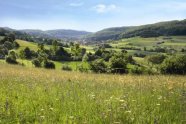
The institute is the central institution for agro-ecology, organic farming, soil management, plant nutrition and landscaping of the countryside.
At least half of the Bavarian territory is arable land, the cultural landscape is above all a working place for agriculture. Beyond that it is the habitat for biota, essential for the formation of ground water and fresh water as well as an important carbon dioxide reservoir for the atmosphere.
At least half of the Bavarian territory is arable land, the cultural landscape is above all a working place for agriculture. Beyond that it is the habitat for biota, essential for the formation of ground water and fresh water as well as an important carbon dioxide reservoir for the atmosphere.
Organisation of working groups
- Soil management
- Fertilisation, nutrients flux and fresh water protection
- Competence center for organic farming
- Cultural landscape, alpine farming, biota
Institute for Crop Science and Plant Breeding
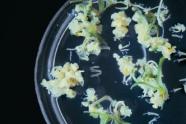
The institute is the information and competence center for crop science in Bavaria. It develops proposals for the Bavarian government, recommendation for the state counselling offices, plant breeding companies and industry. The institute is also involved in sovereign functions.
Plant breeding is the main target for biodiversity and it acts as a basis for a competitive plant production. The issues in crop science are being able to adapt to climate change, sustainable production systems and healthy food production.
Plant breeding is the main target for biodiversity and it acts as a basis for a competitive plant production. The issues in crop science are being able to adapt to climate change, sustainable production systems and healthy food production.
Organisation of working groups
- Biotechnology in plant breeding
- Cereals
- Root crops, oilseed and protein plants, medicinal and spice plants
- Forage crops, maize, grasslands
- Hops
- Official Seed Certification, Circulation control (seeds, fertilizers and plant protection products)
Institute for Plant Protection
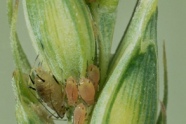
Safe and high quality food production is not possible without well-directed plant protection. Our target is the integrated pest management, which taps into the full potential of all agronomic methods and uses chemical, biological and biotechnical treatments. We develop modern strategies and methods to protect crops and agricultural commodities. As part of our sovereign functions we control the methods used for pesticide application to protect humans, biota and the environment.
Organisation of working groups
- Pest management in general
- Phytopathology and diagnosis
- Specific pest management
- Plant health, quarantine
Institute for Animal Breeding
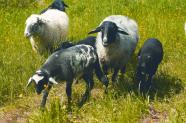
Most of the Bavarian family farms rely on the income of animal husbandry. The typical Bavarian identity and scenery is strongly related to all different types of animal farms. The Bavarian animal breeding supports local breeds and a close connection between farmers and organizational structures. In order to meet the challenges of globalization the Bavarian breeding strategy uses simultaneously innovative and sustainable methods to improve genetics.
Organisation of working groups
- Performance test and quality control
- State manager of breeding
- Quantitative genetics
- Experimental research in animal breeding
Institute for Animal Husbandry, Animal Nutrition and Feed Management
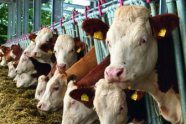
Forage and animal feeding cause most of the costs in food production. The main target in animal nutrition is an adequate supply with energy, nutrients, minerals and trace elements. This leads to healthy, and highly productive livestock farming. The benefit is safe and high-quality food production which has a low impact on our environment and guarantees competitive animal husbandry.
Organisation of working groups
- Feed management
- Pig nutrition and nutrition of small animals
- Ruminants and horse nutrition
Institute for Fisheries
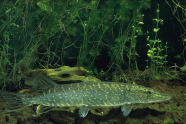
Inland fisheries in the Federal State of Bavaria includes river and lake fisheries as well as aquaculture production. The sustainable management of natural and man-made waterbodies is carried out in accordance to the state’s fisheries legislation, which aims at conserving the abundance of species and providing for stable and well-adapted fish-populations. Based on this, aquatic systems can provide stable natural yields for business and recreational purposes in the long run. In specifically adapted production systems a wide array of species is produced for either direct human consumption or stocking of (natural) water bodies (aquatic systems). Special attention is paid to aspects of breeding and larval rearing of endangered species.
Based on these activities, professional fishermen as well as anglers can harvest natural yields.
Different fish species are cultured in carp pond aquacultures, rainbow trout flow through systems and other intensive systems. Fishes are produced either for human consumption or restocking to open waters.
Bavaria is the most prominent federal state in Germany for inland fisheries. More than thousand farms and several thousand fishermen provide one third of the German carp and rainbow trout production. The yield in commercial fisheries and angling accounts for around 35 % of German fish production.
Organisation of working groups
- River and lake fisheries
- Carp pond aquaculture
- Rainbow trout aquaculture
- Intensive aquaculture
- Education and training
Institute for Agricultural Engineering
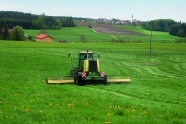
Efficient production systems are the basis for a competitive and sustainable agriculture in Bavaria. This is generally true for all types of agriculture, either for food production, feed management or renewable energy. The institute is involved in modern and efficient systems for crop production and animal husbandry which provide safe and quality food and raw materials and protect natural resources. This means that the economic efficiency is just as important as environmental aspects and social conditions under which people live and work.
The issues of the Institute for Agricultural Engineering and Animal Husbandry are production systems for different crops as well as livestock farming and environmental engineering in the fields of biogas and emissions/imissions.
Organisation of working groups
- Production systems in plant production
- Environmental engineering
- Technical support – mechatronics
- Digitization
Institute for Agricultural Economics
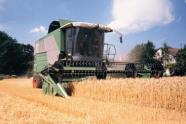
The Institute of Agro-Economy engages in the development of rural areas and the opportunities for increasing farm income. It works with the basics and systems of econometrics. The issue of work is also the evaluation of economic efficiency in all fields of agricultural production including plants, animals and renewable energy. This involves both, conventional and organic production.
The institute contributes to ensuring farmers´ livelihood, to adapting to changing political or socio-economic conditions using the results of applied research. It is also responsible for recommending developments concerning the changing rural infrastructure.
The institute contributes to ensuring farmers´ livelihood, to adapting to changing political or socio-economic conditions using the results of applied research. It is also responsible for recommending developments concerning the changing rural infrastructure.
Organisation of working groups
- Environmental economics and agrarian structure
- Diversification and additional income
- Basic economics
- Economics of animal production
- Economics of market crop production and production of renewable energy
Institute for Quality in the Food Industry
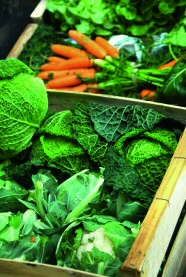
Foto: Fotolia/Elenathewise
The Institute for Quality in the Food Industry was newly established on October 1, 2024, and has emerged from the former Institute for Food Economics and Markets (IEM).
The new institute consolidates essential sovereign tasks of the LfL. Responsibilities include the monitoring of agricultural market regulations and the system control of EU quality rules, geographical protection, and the EU organic regulation. Additionally, the regional programs "Geprüfte Qualität Bayern" (Tested Quality Bavaria) and "Bayerisches Biosiegel" (Bavarian Organic Seal) will also be managed. Alongside these tasks, which were already the responsibility of IEM, the area of specialized legal controls has been added. This includes application controls for plant protection and fertilization, as well as trade controls for seeds, fertilizers, and plant protection products. The contact persons in the respective areas of work will remain the same.
The new institute consolidates essential sovereign tasks of the LfL. Responsibilities include the monitoring of agricultural market regulations and the system control of EU quality rules, geographical protection, and the EU organic regulation. Additionally, the regional programs "Geprüfte Qualität Bayern" (Tested Quality Bavaria) and "Bayerisches Biosiegel" (Bavarian Organic Seal) will also be managed. Alongside these tasks, which were already the responsibility of IEM, the area of specialized legal controls has been added. This includes application controls for plant protection and fertilization, as well as trade controls for seeds, fertilizers, and plant protection products. The contact persons in the respective areas of work will remain the same.
Organisation of working groups
- Policies and analysis of agricultural markets
- Quality assurance for agriculture and food industry
- Regional products, public relation
- Animal, meat, eggs and poultry production
- Dairy production and industry
- Organic farming and food industry
- Specialized legal controls



